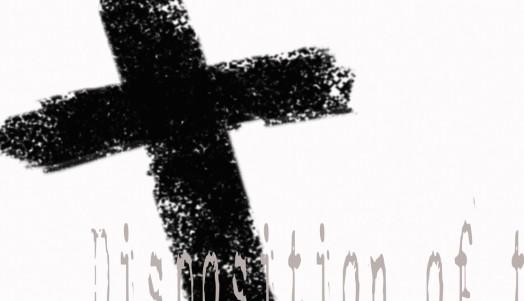
2 minute read
In the Beginning: The Book of John ((John 5:9-18[HCSB])
9 Now that day was the Sabbath, 10 so the Jews said to the man who had been healed, “This is the Sabbath! It’s illegal for you to pick up your mat.”
11 He replied, “The man who made me well told me, ‘Pick up your mat and walk.’ ”
Advertisement
12 “Who is this man who told you, ‘Pick up your mat and walk’? ” they asked. 13 But the man who was cured did not know who it was, because Jesus had slipped away into the crowd that was there.
14 After this, Jesus found him in the * temple complex and said to him, “See, you are well. Do not sin anymore, so that something worse doesn’t happen to you.” 15 The man went and reported to the Jews that it was Jesus who had made him well.
16 Therefore, the Jews began persecuting Jesus because He was doing these things on the Sabbath. 17 But Jesus responded to them, “My Father is still working, and I am working also.”
18 This is why the Jews began trying all the more to kill Him: Not only was He breaking the Sabbath, but He was even calling God His own Father, making Himself equal with God.
Something worse
Jesus’ thinly cloaked warning about sinning after intervention is also at the heart of what He told the woman who was dragged to the gates of the city to be stoned for her indiscretions:
John 8:10-11 When Jesus stood up, He said to her,
“Woman, where are they? Has no one condemned you? ”
“No one, Lord”, she answered.
“Neither do I condemn you,” said Jesus. “Go, and from now on do not sin anymore.”
I interpret this to mean that Jesus is making clear the consequences of certain choices and warns against them if we truly wish to see different results. This is not a startling revelation, just a point of view we do not generally associate with the mandate from a traditional pulpit. We know it is not humanly possible to go and “sin no more.”
However, it is very clear to each of us that if we continue our sinful behavior something worse will undoubtedly happen. All of us being amateur odds makers, we know that the law of averages works against us (not for us) the longer we persist in any given activity.
So, what is the real violation here? It is not simply healing a man that stirs the ire of the Pharisees; it is Jesus’ continued bending and breaking of legalities by which He relentlessly mocks the religious establishment in Jerusalem.
This is not an issue of faith in any way, shape or form. Note in verse 16 that this Sabbath healing wasn’t an isolated incident; Jesus was evidently doing many more things that were ruffling feathers, and He was highly intentional about it!
What we must take away from this is the fact that for all that we do (or do not do) there are specific outcomes. As individuals with freewill, we are allowed be healed, and to be on our way, no matter the day of the week. But will we repent, and then tell our communities that “Jesus made us well?”




